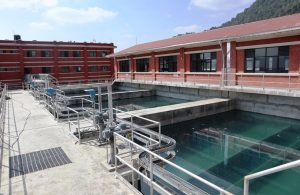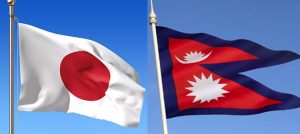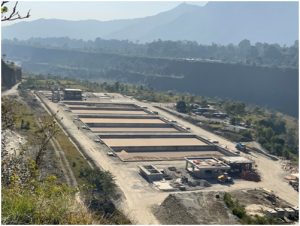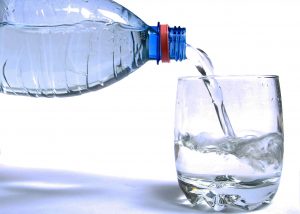
In November 2020, the Department of Food Technology and Quality Control inspected a factory of a drinking water supplier in Tokha, north of Kathmandu. When the department conducted a laboratory test on its water, it found that the supplier was directly filling the jars with untreated groundwater and sending it out to market as drinking water.
Following that, the department sealed the water factory for over three months stating its malpractice, which posed a serious threat to public health.
The department, however, allowed the factory to operate once again after its owners apologised and agreed not to sell unhygienic drinking water. After that, the department fined the factory and without releasing its name, allowed it to operate.
To the department’s surprise, it received a complaint about the same supplier accusing it of selling unhygienic drinking water. In response to the complaint, the department did a test again and it found the supplier guilty and decided to file a case against the company.
“The intention of the company seems to cheat people. It might have thought that there would be no consequences but the department has taken action against the supplier,” says an official who conducts tests at the factory.
The Department of Commerce and Supply Management also frequently inspects water factories. In an inspection that was conducted a few months ago, a suspicious label was pasted on a drinking water jar. Further investigations found that the drinking water supplier was filling water in a jar owned by another drinking water supplier and the distributor had pasted another label before selling it to the public.
These are a few examples of how unhygienic drinking water is being supplied in Kathmandu Valley. Officials who go for inspections say that most of the water jars contain algae as they are not properly cleaned before filling up again. Many drinking water distributors also use duplicate brands as they continue to cheat the public.
“We have been training and warning these water suppliers. Yet this malpractice continues,” says Homnath Bhattarai, director at the Department of Commerce and Supply Management.
Careless suppliers

Inspections conducted by the Department of Food Technology and Quality Control have found water suppliers were selling unhygienic drinking water. Officials say, these suppliers were not following basic health and safety standards and were causing harm to public health. As a result, the government has taken action against drinking water suppliers for selling unhygienic drinking water.
“We will take action to lot more suppliers and have decided to increase our monitoring,” says Mohan Krishna Maharjan, a senior officer at the Department of Food Technology and Quality Control.
Maharjan says that drinking water sold by a few suppliers is dangerously unhygienic.
“They contain germs and microorganisms like E.coli and Coliform which cause Cholera. This can lead to an epidemic if we are not careful and strict,” says Maharjan.
E. coli is a bacteria found in water if it is contaminated with sewage or animal waste. E. coli and coliform can cause diarrhoea, pneumonia, urinary tract infections and other diseases.
According to Maharjan, water sold in drinking water jars is more unhygienic than water sold in plastic bottles. About the danger, Maharjan says, many water suppliers have breached even the most basic criteria set by the government.
“We have now decided. If the supplier is found to sell unhygienic drinking water by not following government guidelines, they will be arrested,” says Maharjan.
He says that of the many tests they have conducted, they have found the water also contained an unbalanced amount of pH and minerals.
Time for some action
In fiscal year 2020/21, the Department of Food Technology and Quality Control inspected 165 water factories, among them 16 were found to be producing unhygienic drinking water. The department filed a case against each one of them.
In 2021/22, the department inspected 129 water factories where it found unwanted elements in 17 factories. It then filed cases against nine factories for distributing unhygienic drinking water.
In 2022/23, the department inspected 155 factories and found 55 factories were selling contaminated drinking water. Among the 55, the department has filed cases against 21 factories.
Of the 600 water factories in the country, 200 are based in Kathmandu.
Standard of drinking water

The Department of Food Technology and Quality Control has published the revised version of the drinking water quality standard 2022. The department has set the parameters that need to be tested to ensure the water is fit to drink. For water to be deemed fit to drink, the supplier needs to ensure the 28 different standards are met.
Under these requirements, the supplier must address 28 chemical factors for drinkable water, categorised into physical, chemical, and microbiological segments. According to the established standards, 19 of these parameters are subject to mandatory testing, while the remaining nine can be evaluated based on their necessity and associated risks.
The guidelines encompass provisions related to water sources and obligatory labelling. Additionally, the standards stipulate the utilisation of clean containers for water packaging, along with the inclusion of production and consumption dates. It is also incumbent upon the supplier to provide a detailed breakdown of the water’s constituent elements and to furnish evidence affirming its quality to the consumer.
Suppliers feel targetted

However, suppliers of the drinking water factories against whom action has been taken say they have been targeted. Nepal Bottled Water Industry Association claims that the water they sell is clean and fit to drink.
Despite the water’s proven quality, the department collects samples from the market rather than directly from the industry for testing. Consequently, the factory ends up bearing the brunt of others’ errors, says Dhruba Gautam, President of the Nepal Bottled Water Industry Association.
“They are targeting us to show they are working. But they are not working very efficiently,” says Gautam.
Gautam says that the rumour that coliform and other bacteria are found in the water every year is not true. He further adds that the weaknesses and mistakes made after distributing the water from the factory are also blamed on the supplier and not on the distributor.
The Department of Commerce and Supply Management, however, asked consumers to pay attention to the basic standards of quality while consuming water through these jars.
Although the biological quality of water is revealed only through laboratory tests, consumers can take stock of the basic quality themselves, says Maharjan.
The department says several aspects are to be considered, including the hygiene status of water jars and bottles, their seal status, water’s production and consumption dates, as well as compliance with permission for water production and sale.
Maharjan says that things like duplicating the brand name in the water should also be taken into consideration. In addition, the department says that it is mandatory to check whether the quality has been certified by the government agency.
This story was translated from the original Nepali version and edited for clarity and length.
























